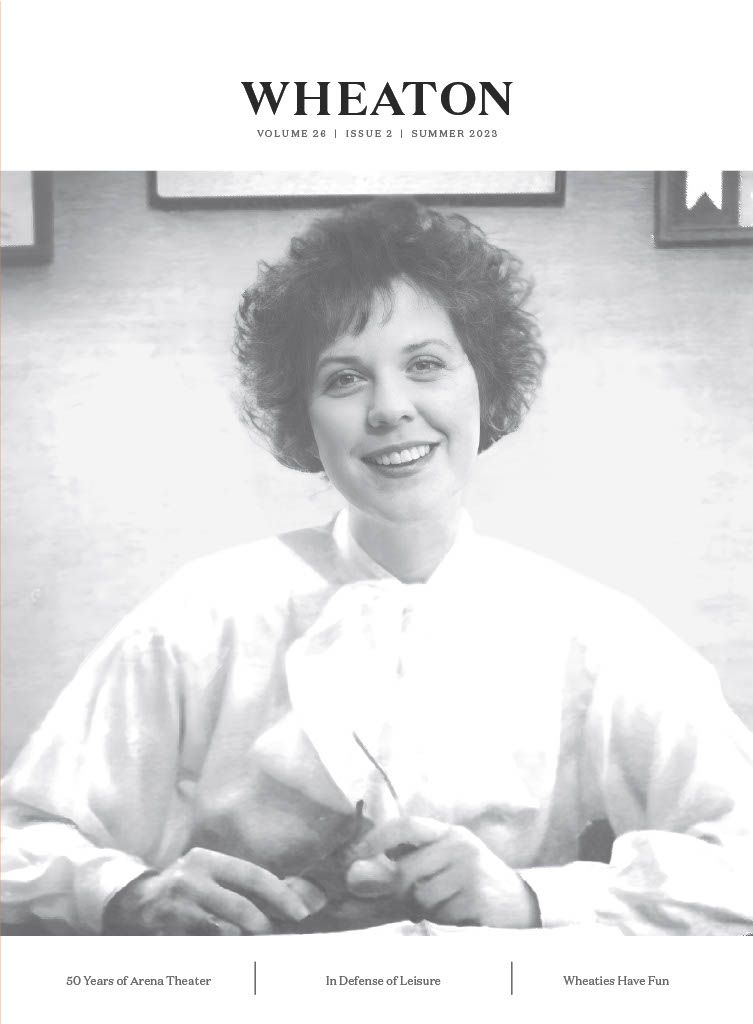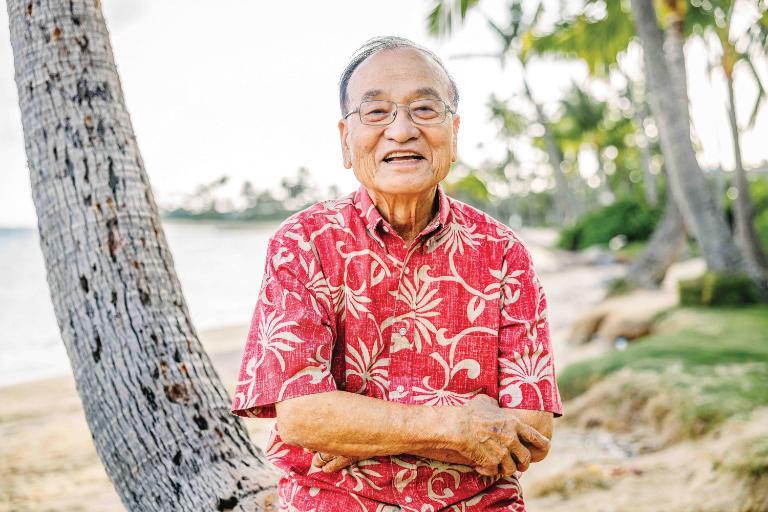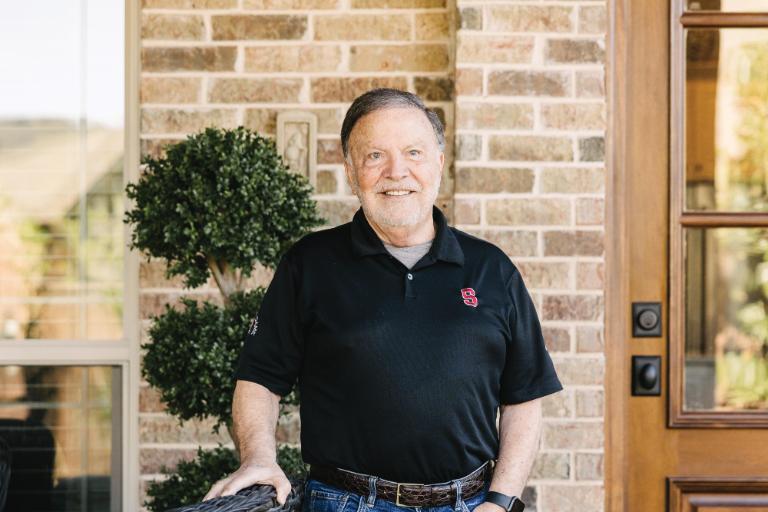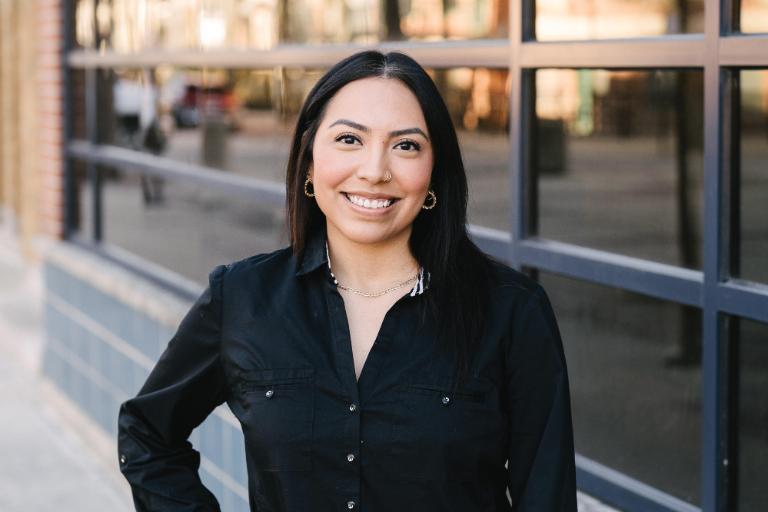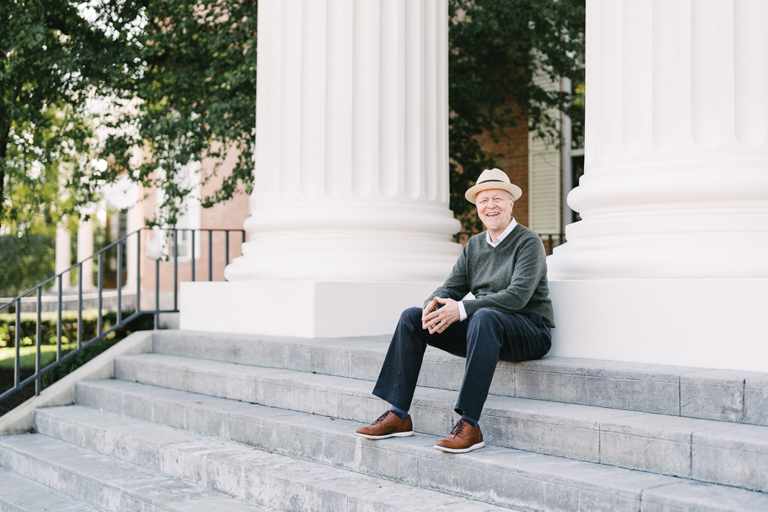Carrying in the King
Marilee Melvin Retires after 35 Years Serving Wheaton College
Words: Liuan Chen Huska ’09
Photos: Tony Hughes and Marilee Melvin ’72
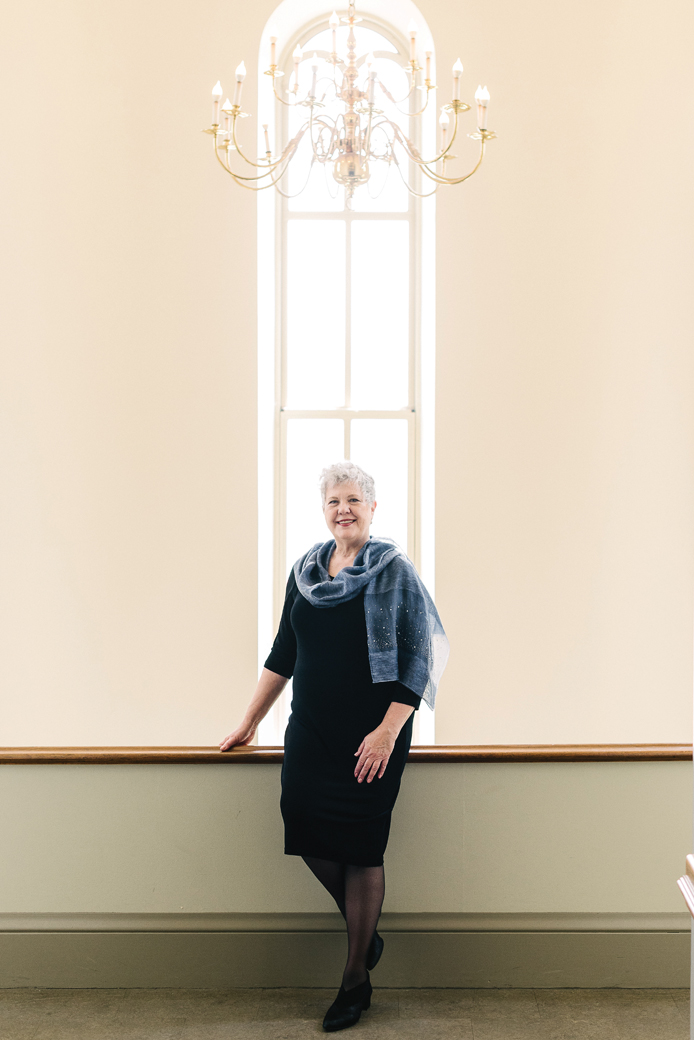
Photo by Tony Hughes
When Marilee Melvin ’72 transitioned in 2006 to become the executive assistant to the president after nearly two decades as vice president for alumni relations and executive director of the Alumni Association, some colleagues thought she was sabotaging her career. “It was a countercultural decision,” Melvin said.
Melvin herself felt some angst, moving from a high-visibility leadership role to serving Wheaton’s president behind the scenes. “It’s so clear that God’s call has been on me to do this,” she said. “But I’ve had to deal with my desire for greatness, attention, and credit.”
At a key moment during her career transition, a friend reminded her of the story of Jesus riding into Jerusalem on a donkey. “If I sometimes feel unseen, serving in humble tasks behind the scenes, I remind myself that I am actually helping to carry in King Jesus.” Melvin is now retiring after 35 years of serving in three senior roles at Wheaton College.
“She will not be possible to replace,” said President Philip Ryken ’88, whom Melvin has assisted for his entire presidency. “Marilee brings an exceptional passion for the mission of Wheaton College, an unrivaled knowledge of our alumni, and a nice balance of rigorous thinking and heartfelt compassion.”
For Melvin, her decades of serving the College have been relationally rich and helped to form in her a Christlike character. “Which is what I wanted,” she said. “I just didn’t know how to get there.”
EARLY YEARS
Marilee Melvin grew up in old Oak Brook, Illinois, as the second of nine children. Her parents, Dr. Arthur ’41 and Marian Bulander Melvin ’44, met in Blanchard Hall during Alumni Weekend 1946. From an early age, Melvin established herself as the family writer, penning stories, poetry, letters, and journals. She recalls family dinners every evening followed by devotionals led by one of her parents.
Starting in the mid-1960s, Melvin’s parents developed an inductive method for clarifying basic human rights, which they taught in seminars around the country. Helping her parents share this curriculum would provide a framework for Melvin later on, when she entered Wheaton as a student in the tumultuous late ’60s and then started a career.
Melvin’s undergraduate years at Wheaton were filled with rich conversations with classmates and faculty, made deeper, she believes, without the ability to text or email. After graduating with a B.A. in philosophy, she went on to receive an M.A. in philosophy from the University of Chicago.
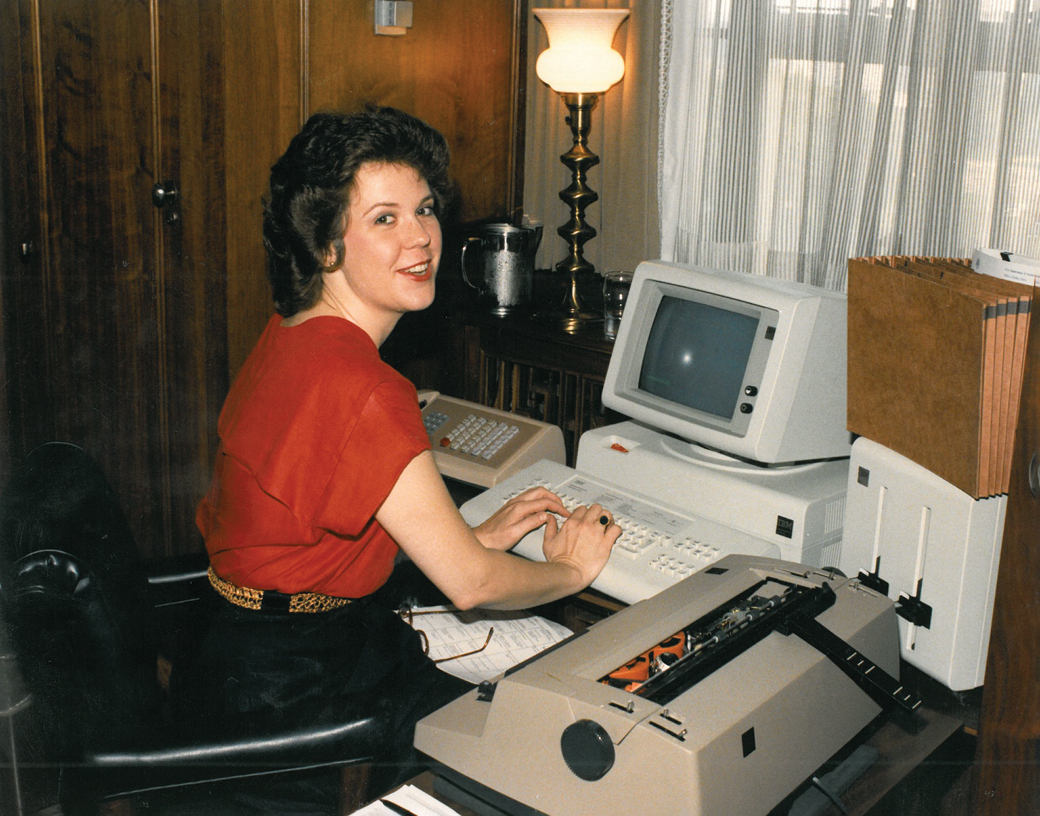
Melvin in the office of the Attorney General.
1985, Photo courtesy of Marilee Melvin
In 1976, Melvin took an administrative assistant role with several think tanks in Washington, D.C., focused on political terrorism and on the role of the judiciary in a democratic society. Three years later, she joined the Presidential Correspondence unit as a civil servant in the Carter administration the week American hostages were taken in Iran. In 1981, Melvin moved to the West Wing to serve as a political appointee on the staff of Ronald Reagan’s counselor, Edwin Meese III. Melvin continued to work for Meese as a special assistant when he became the Attorney General. She received the Justice Department’s Award for Sustained Excellence in 1987.
“Much of my exciting, glamorous, and historical D.C. experience came to me unexpectedly,” said Melvin. She now sees how each role prepared her for the next, eventually landing her back at Wheaton College as its first female vice president and later in her role assisting two Wheaton College presidents.
“I found that my experience as an assistant in D.C.—training to become a leader—and then my experience as a leader at Wheaton where I was gaining insights that helped me become a more useful assistant—have not only expanded my usefulness at Wheaton College but have also deepened and enriched my experience of work,” Melvin said.
Some of Melvin’s career moves may look from the outside like going “down the ladder,” but Melvin believes that pursuing fame and glory is ultimately meaningless: “For a Christ follower, the most exciting vocation imaginable is meaningful service that advances Christ’s kingdom,” she said.
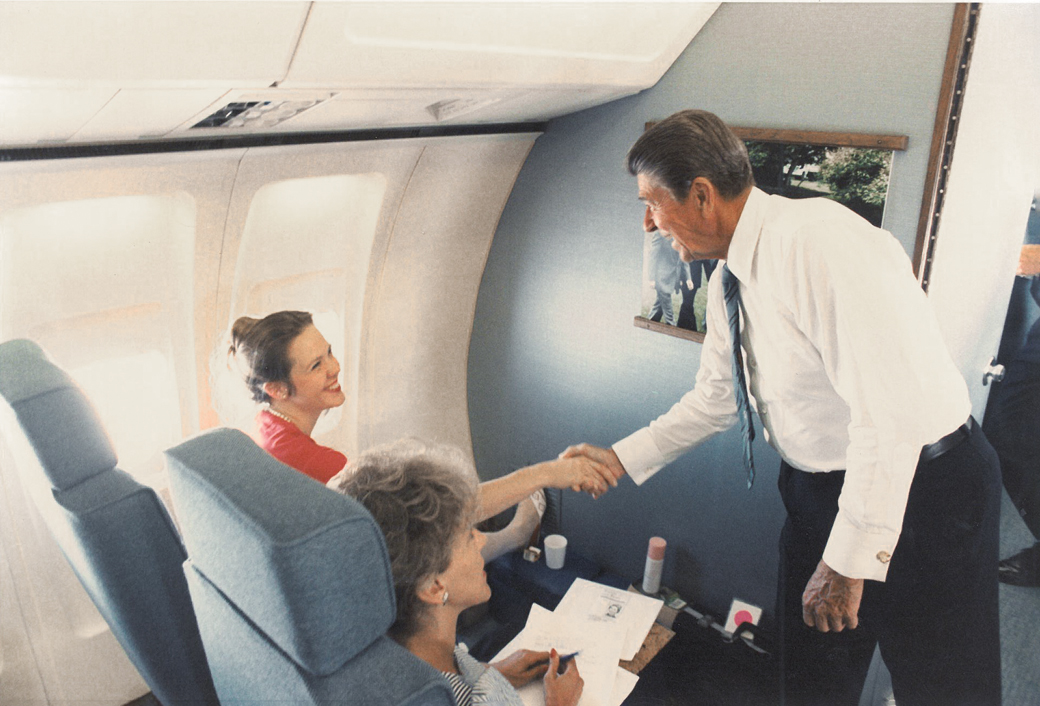
Melvin aboard Air Force One, greeting President Ronald Reagan.
1983, Photo courtesy of Marilee Melvin
LEARNING TRUE LEADERSHIP
In 1986, at the height of her D.C. career, Melvin joined her recently widowed father at Wheaton for his 45th class reunion. She was so moved by the relationships she witnessed among alumni that she wrote a piece for this magazine (Wheaton Alumni, Volume 54, Number 2, March/ April 1987, page 6) on enduring Wheaton friendships and the lasting value of a Wheaton education. Wheaton would soon be looking to fill the newly created role of VP for alumni relations, bringing the Alumni Association under College governance. The search committee saw Melvin’s essay and decided she was right for the job.
Dr. David Gieser ’71, a College trustee since 1989 and then-president of the Alumni Association, interviewed Melvin when she applied. “Notwithstanding the high-pressure, demanding role she played in our government, during her interview, she was warm, cordial, and open,” Gieser said.
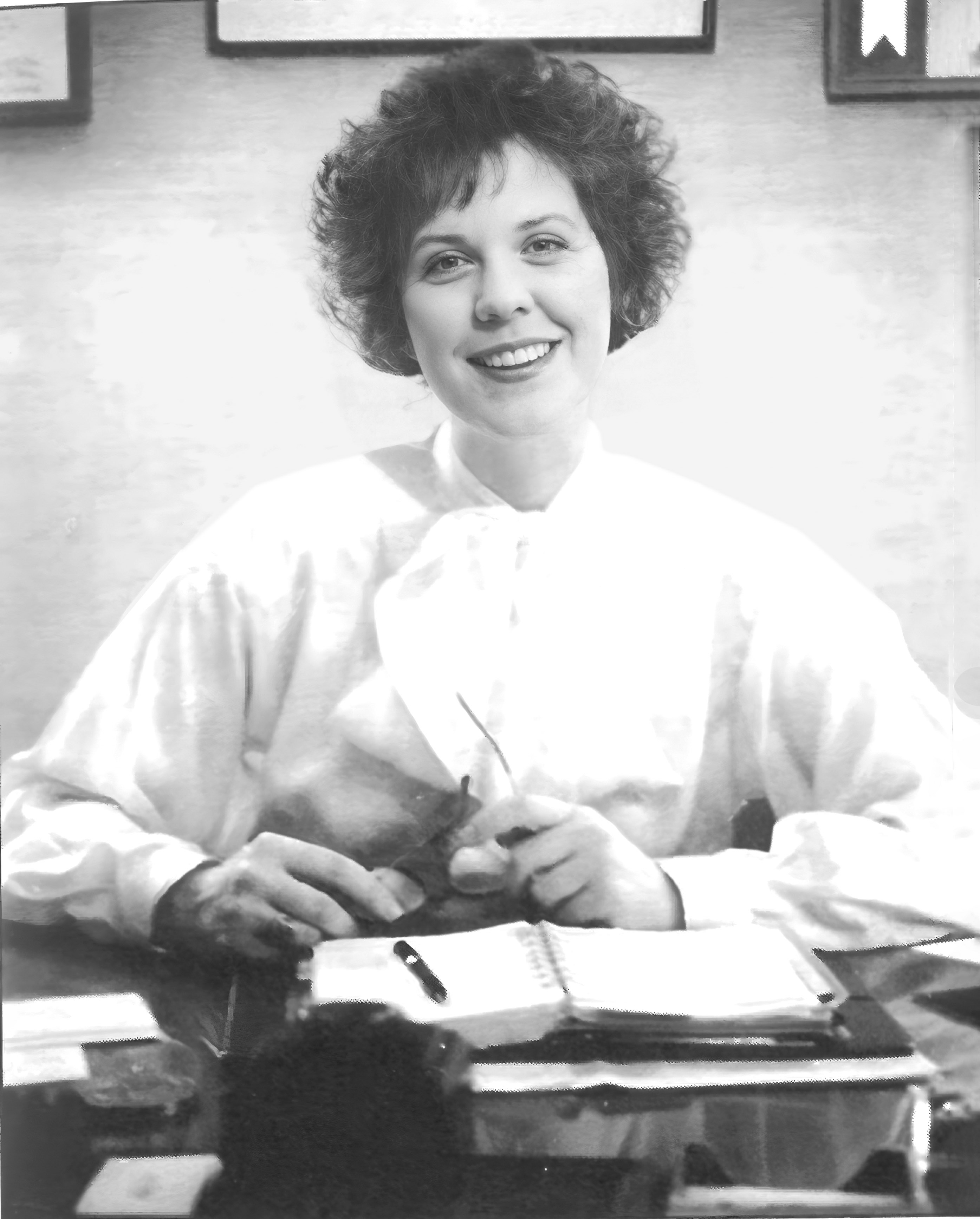
Marilee Melvin ’72 at her desk in 1988 during the first year of her tenure as vice president of alumni relations.
Photo Courtesy of Wheaton College Buswell Library Archives & Special Collections
Melvin’s post as vice president for alumni relations became a crucible for learning true leadership. “I was 37 years old when I was appointed VP,” Melvin said. “Some people made a bit too much of the title. Yes, I had great experiences in D.C., but I actually did not know yet how to effectively manage and take care of my employees the way I should have. I was sometimes more interested in the results we would achieve together than I was interested in them as persons.”
Melvin remembers being held accountable for these failings, painfully, but also receiving life-giving words from Titus 3: Left to ourselves, we are caught in the sin cycle, even hating others and being hated, but Christ came to set us free. “This isn’t just religion,” Melvin realized. “This is actual, human-sized help for how to both lead and follow.”
That marked a turning point in Melvin’s leadership, which also gave her discernment with other leaders. “I have observed that sometimes otherwise good or successful leaders treat other people in a way that is discourteous or insensitive, and it may flow from a lack of understanding or patience with those parts of themselves that have been wounded,” she said. “Knowing that Christ our leader was a Man of Sorrows, we can let his Spirit illuminate those parts of ourselves that are wounded and need his healing, and trust him to do it. He is doing it for me.”
Following this difficult time of becoming more self-aware, Melvin served as vice president for alumni relations for another decade. In this role, Melvin and her team strengthened volunteer involvement in class reunions and initiated alumni groups around the world, an alumni travel program, and an online community for alumni. She also encouraged reunion class gifts and special groups like alumni in business, alumni of color, and alumni in urban ministry. Melvin’s team produced two devotional volumes written by alumni and a book on alumni in missions. She also regularly contributed articles and editorial support to Wheaton magazine.
“No one alive has more connections with the Wheaton family than Marilee Melvin,” said Cindra Stackhouse Taetzsch ’82, Chief Alumni Officer and Executive Director of the Alumni Association. “She knows alumni from every decade, from her parents’ era through her time as VP and the many years since as the president’s special assistant.”
In the early 2000s, when the Board of Trustees saw that the president needed more support, Dr. Duane Liftin, then president, asked Melvin if she could help. At first, she said, “No, I love my job.” But Melvin realized that God had been preparing her for just such a role through her time serving federal leaders and then as a leader herself. She transitioned to the role of executive assistant to the president in 2006, the same year she received the Alumna of the Year Award for Distinguished Service to Alma Mater.
“If it’s for the right kind of leader with clear accountability, you can offer this unique form of service where you can remain fairly invisible and work to advance their agenda because it’s good and you believe in it,” Melvin said. “It’s what I hope I’ve done.”
DOING THE KING’S WORK
Since 1988, Melvin has been a member of the College’s Senior Administrative Cabinet (SAC). Sustaining a longer tenure on SAC than any other Wheaton administrator, Melvin has become a keeper of institutional memory. “She often provides a historical background to a person, to a policy, to any other aspect of our work as a college. I value that,” said President Ryken. “To know where you are and where you’re going, you have to know where you’ve been.”
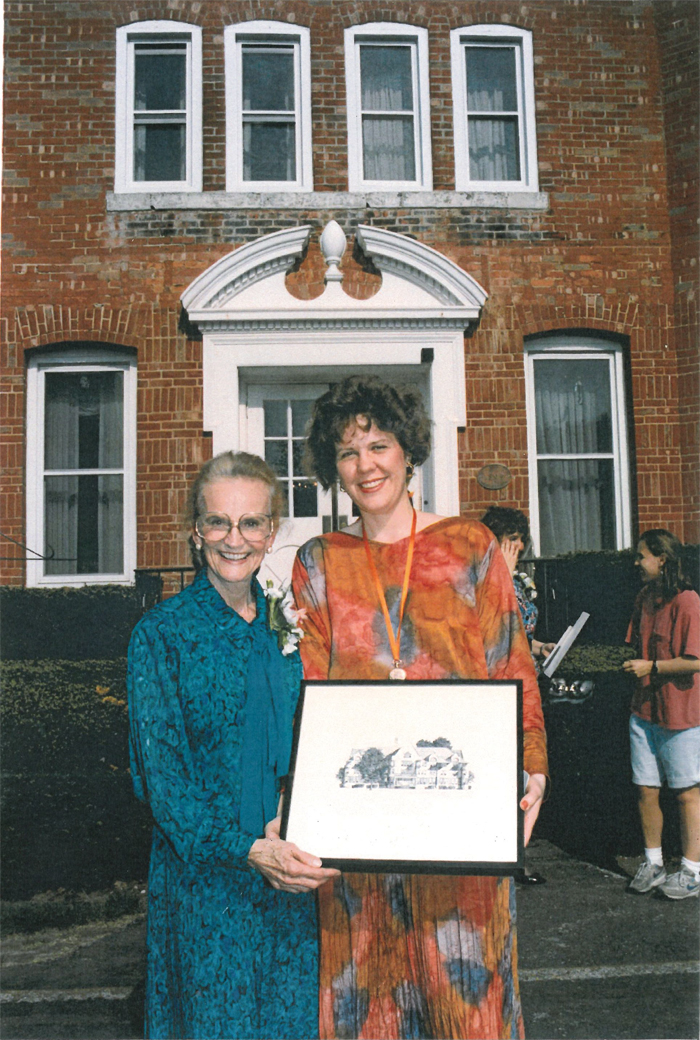
Melvin with Ruth Graham outside the newly renovated Williston Hall.
1993, Photo courtesy of Marilee Melvin
Melvin has witnessed the challenges faced by the College to remain faithful to a vision of Christ-centered liberal arts education while responding to the needs of a changing world and embracing biblical kingdom diversity. She worked alongside the administration during key changes, like Dr. Litfin’s decision to abandon the Crusader mascot a year before the September 11, 2001, attacks and Dr. Ryken’s decision to move the Office of Multicultural Development from the Student Services Building to the Beamer Center, symbolizing its centrality to Wheaton’s mission. More recently, Wheaton’s passage through the existential moment created by the COVID-19 pandemic, social unrest, national polarization, and a shrinking college-bound demographic has demonstrated to Melvin more of God’s grace: “Wheaton College will come out of this challenging period stronger, leaner, and more mission-focused than ever.”
Melvin’s time at Wheaton has also held gems. As a student, she watched a piano key fly off during the renowned Van Cliburn’s performance in Edman Chapel. As vice president for alumni relations, she planned for Billy and Ruth Bell Graham’s 50th class reunion in 1993. Last year, Melvin co-chaired her class’s 50th reunion. “Marilee, for many, is their lifelong connection to Wheaton College,” said reunion co-chair Philip Hubbard ’72, a College trustee for 24 years. “She has been the one constant through three of the eight college presidents.”
Melvin also cherishes her mentoring relationships with students, which started in the mid-’90s when she taught a section of the Freshman Experience course. Since then, she has met regularly with young women in a group she calls “Pilgrim’s Rest,” named after her home. “Connecting with them has reminded me how professors and adults poured time and attention into me during my Wheaton College days,” Melvin said. In particular, she remembers her mentors Chaplain Evan ’27, D.D. ’55 and his wife, Olena Mae Hendrickson Welsh ’41, and Dr. and Mrs. Clyde and Martha Kilby.
In the coming years, Melvin hopes to follow up with the students she has mentored, as well as capture the Melvin family story in writing for her 29 nieces and nephews and many great-nieces and -nephews.
Retirement from full-time work, for Melvin, marks another passage, like her transition to different career roles. Since the beginning, Melvin reflects, God has asked her to do her work well and then to let it go. “I was called to serve for a season,” she said. Quoting Acts 17:28 (ESV), she reflected, “‘In him we live and move and have our being.’ It’s not so much the work I’ve done but his work that I got to do. And I’ve helped to carry in the King.”
